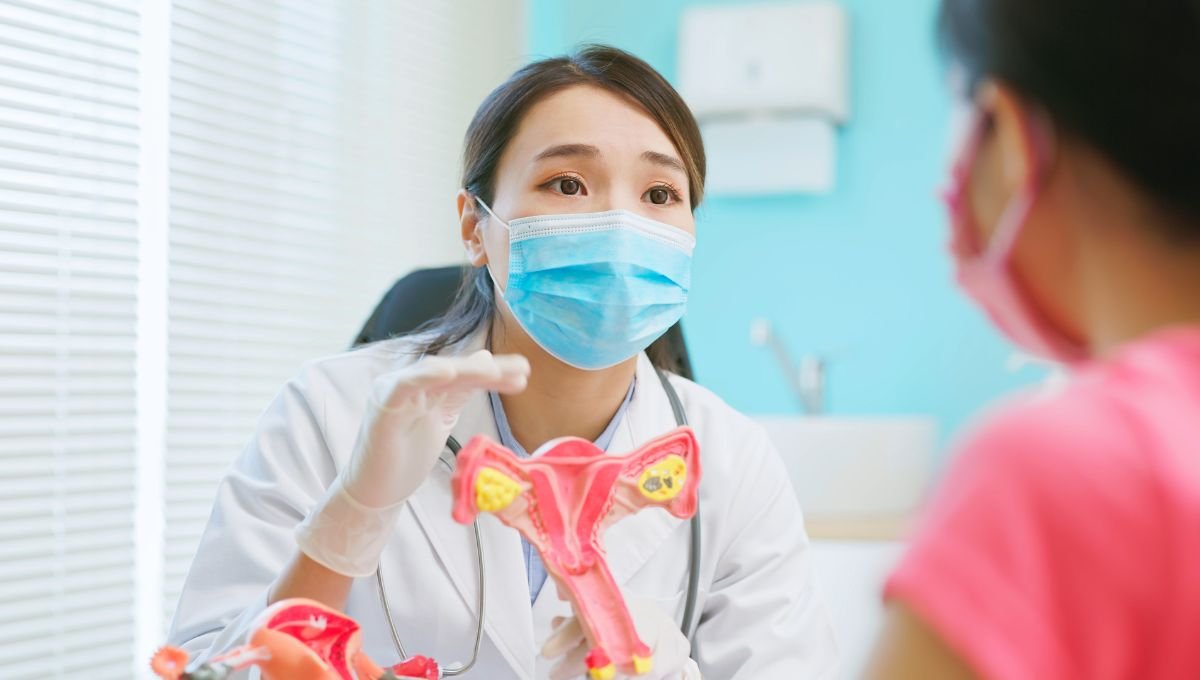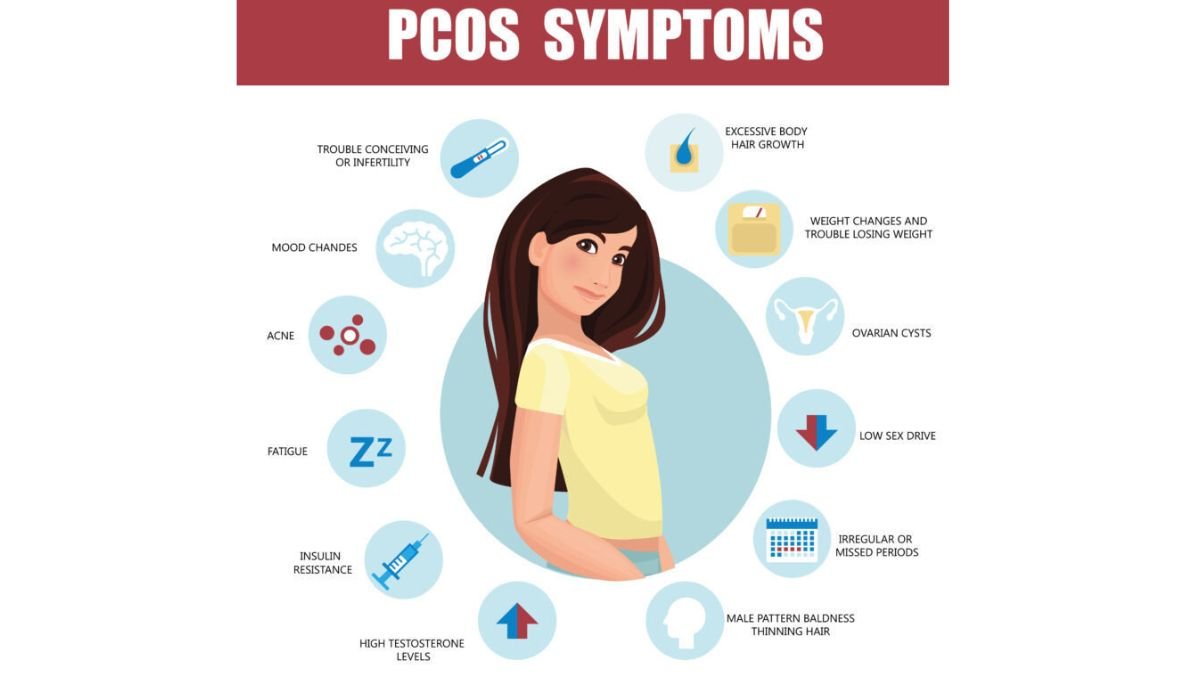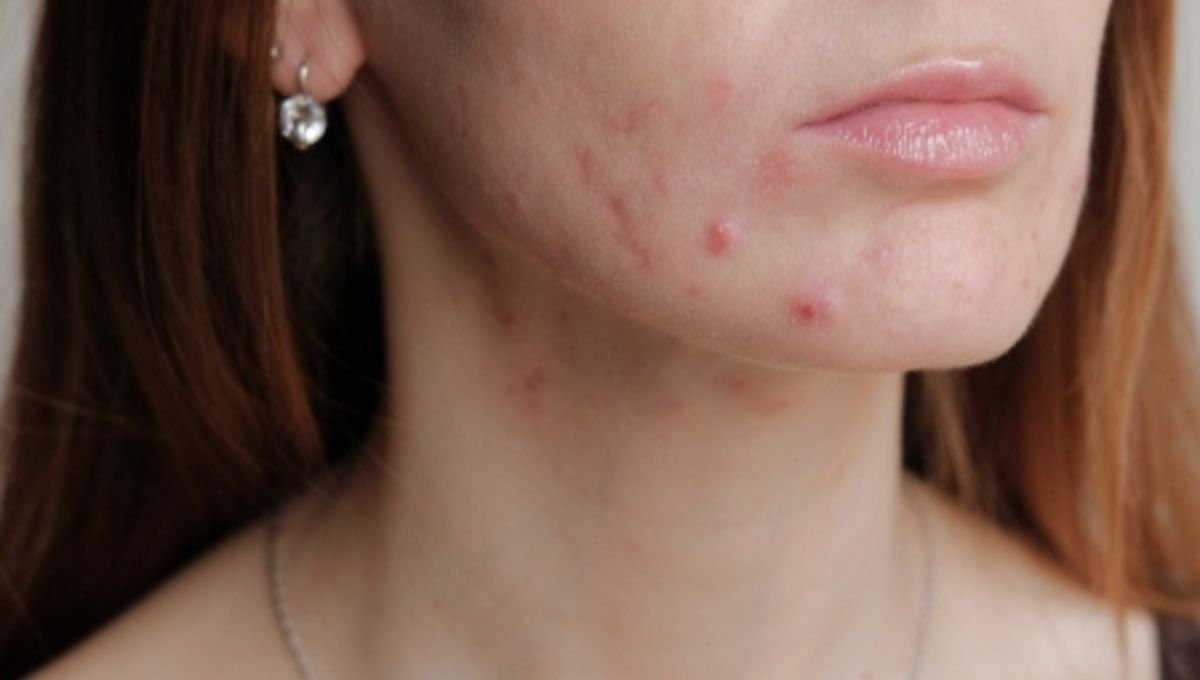What is PCOS, or polycystic ovarian syndrome?
A hormonal issue in women can result in a collection of symptoms known as polycystic ovarian syndrome, or PCOS. The ovaries are impacted. These are the tiny organs where a woman stores her eggs. But the body as a whole may also be impacted. PCOS affects a large percentage of fertile women. If left untreated, it may in certain instances result in major health problems. Therefore, adopting effective PCOS self-care is essential.
Ovulation occurs when a mature egg is expelled from an ovary. This happens so that male sperm can fertilize it. If the egg is not fertilized, it is released from the body during your menstrual cycle.
PCOS, or polycystic ovarian syndrome, is thought to impact 7-8% of fertile women.
Worldwide, up to 70% of afflicted women go undetected.
PCOS is the most common cause of anovulation and a significant factor in infertility.
Numerous long-term health issues that impact both physical and mental welfare are linked to PCOS.
Although PCOS runs in families, there are ethnic differences in the disease’s symptoms and effects.
In some circumstances, a woman may not produce enough of the hormones needed for ovulation. When ovulation fails, the ovaries may create many tiny, fluid-filled sacs called cysts. Androgens are the hormones that these cysts produce. Males often have higher amounts of androgens, a hormone type that women normally have in smaller amounts. A high testosterone level is typical in women with PCOS. This may exacerbate a woman’s menstrual cycle issues. Additionally, it may result in a range of PCOS symptoms.
One typical therapy for PCOS is medication. Although it doesn’t cure PCOS, this can help prevent some health problems and minimize its symptoms.
Why does PCOS occur?
Experts are uncertain about PCOS’s precise etiology. Insulin resistance is common in PCOS-affected women. This indicates poor insulin use by the body. Increased testosterone levels may result from the body’s accumulation of insulin. Furthermore, obesity might increase insulin levels and exacerbate PCOS symptoms. Implementing effective PCOS self-care strategies can help manage these symptoms and improve overall health.
Who is susceptible to PCOS?
If your mother or sibling has PCOS, your chances of developing it may increase. It may also be more common in those who are obese or have insulin resistance.
What signs of PCOS are present?
 Symptoms that could exist include:
Symptoms that could exist include:
Heavy, prolonged, erratic, or nonexistent periods; infertility; acne or greasy skin; abundant facial or body hair; male-pattern baldness or hair thinning; weight gain, particularly around the abdomen.
Additional health problems that individuals with PCOS are more likely to encounter include:
elevated cholesterol, heart issues, type 2 diabetes, and hypertension (high blood pressure) in combination
endometrial cancer, often known as inner lining cancer of the uterus.
A poor body image, hopelessness, and anxiety can also be caused by PCOS. Certain problems, such as obesity, infertility, and unwanted hair growth, can lead to social stigma. This may affect other facets of life, such as family, relationships, work, and involvement in the community.
Among the signs of PCOS are:
- missing, erratic, or incredibly light periods
- big ovaries or ovaries with many cysts
- Excessive body hair on the back, stomach, and chest (hirsutism)
- Gaining weight, particularly around the abdomen
- greasy skin or acne

- baldness with a male pattern or hair thinning
- Unable to conceive
- Skin tags are little bits of excess skin found in the armpits or on the neck.
- areas of thick or black skin on the back of the neck, under the armpits, and behind the breasts
How is the diagnosis of PCOS made?
Identification

Menstrual periods that are erratic or nonexistent; ultrasound images reveal polycystic ovaries.
Blood tests can identify unique differences in hormone levels, however they are not always present. Patients with polycystic ovarian syndrome may exhibit more than usual concentrations of:
- Luteinizing hormone (LH, a pituitary hormone that influences hormone production by the ovaries and is important for normal ovulation), insulin (a hormone primarily involved in the utilization of energy from food), anti-müllerian hormone (which measures the fertility level of the ovaries), testosterone (an ovarian androgen hormone that influences hair growth), and estrogen (an ovarian hormone that stimulates growth of the womb lining (endometrium)).
- When diagnosing patients, physicians take into account a variety of factors, such as the possibility that polycystic ovaries run in families, the possibility that irregular periods and ovulation are a normal part of puberty or menopause, and the increased risk of PCOS development in women with a family history of type 2 diabetes or PCOS. Additionally, some women with PCOS may not always be able to detect polycystic ovaries on an ultrasound scan. Your doctor will inquire about your symptoms and medical history. There will also be a physical examination. Probably included in this will be a pelvic exam. This examination looks at the internal and external health of your reproductive organs. Understanding these diagnostic steps is an essential part of effective PCOS self-care.
Several PCOS symptoms are similar to those brought on by other medical conditions. As a result, you might additionally undergo tests like:
- Ultrasonic. This test generates images of blood arteries, tissues, and organs using sound waves and a computer. This examination determines the size of the ovaries and detects the presence of cysts. The test can also measure the endometrium, or uterine lining, thickness.
- Blood examinations. These search for elevated androgen and other hormone levels. Your blood glucose levels may also be checked by your healthcare practitioner. Additionally, you could get your triglyceride and cholesterol levels examined.
How is the treatment for PCOS?
PCOS treatment is influenced by several factors. These can include your age, the intensity of your symptoms, and your general health. Whether you intend to become pregnant in the future may also have an impact on the kind of treatment you receive. If you intend to become pregnant, your care can consist of:
- A shift in exercise and nutrition. You can lessen your symptoms and decrease weight by following a nutritious diet and increasing your physical activity. They may also facilitate ovulation and help your body use insulin more effectively.
- Medications that trigger ovulation. Drugs can assist in the ovaries’ regular discharge of eggs. These medications come with certain hazards as well. They may raise the likelihood of multiple births, including twins. Moreover, they may result in ovarian hyperstimulation. It is at this point that the ovaries overproduce hormones. It may result in symptoms including pelvic pain and bloating in the abdomen.
Handling
- While there is no known cure for PCOS, there are treatments that can help reduce symptoms.
- If you experience irregular periods, are having trouble getting pregnant, or have noticeable acne or hair growth, speak with a healthcare professional.
- A person’s lifestyle can be changed to help relieve some of the PCOS symptoms. Lowering body weight and the risk of type 2 diabetes can be achieved with a balanced diet and frequent exercise.
- Menstrual cycle regulation and the use of birth control tablets can help manage symptoms. Extra drugs assist reduce acne or excessive hair growth caused by PCOS.
- Treatment options for PCOS-related infertility include medication, surgery, and lifestyle modifications that encourage regular ovulation. In vitro fertilization (IVF) is an option, even though it has a lot of risks.
If you don’t intend to get pregnant, you might receive the following care:
- Birth control tablets. These aid in regulating menstrual periods, lowering testosterone levels, and lessening acne.
- Medication for diabetes. In PCOS, this is frequently used to reduce insulin resistance. It might also aid in lowering testosterone levels, slowing down the growth of hair, and promoting more regular ovulation.
- A shift in exercise and nutrition. You can lessen your symptoms and decrease weight by following a nutritious diet and increasing your physical activity. They may also facilitate ovulation and help your body use insulin more effectively.
- Medications for additional symptom relief. Certain medications can aid in lowering acne or hair growth.
Which PCOS problems are possible?
The extent of the issue:
- One of the most prevalent hormonal disorders affecting women who are of reproductive age is PCOS, a serious public health concern. An estimated 8–13% of women who are of reproductive age have the illness, and up to 70% of instances go untreated.
- Certain ethnic groups have a higher frequency of PCOS and are also more likely to have complications, particularly those connected to metabolic issues.
- The biological and psychological effects of PCOS, which are particularly associated with obesity, body image, and infertility, can lead to mental health problems and social stigma.
- The symptoms of polycystic ovarian syndrome can differ from person to person. Symptoms can manifest in a variety of ways and often have no obvious reason.
- Serious health issues are more likely to arise in women with PCOS. These include excessive blood pressure, heart and blood vessel problems, type 2 diabetes, and uterine cancer.
- Fertility (the ability to conceive) is commonly impaired in women with PCOS having PCOS and living with it Weight gain, hair growth, and acne are among the physical signs of PCOS that some women battle with. Cosmetic procedures like laser hair removal and electrolysis could make you feel better about the way you look. Discuss the best course of action for treating the symptoms that are bothering you with your healthcare professional.
When ought I to give my healthcare provider a call?
- In case the bleeding doesn’t stop, contact your doctor.
- Crucial information about PCOS
- PCOS is one of the most common hormonal disorders affecting fertile women.
- Women with PCOS may not ovulate in addition to having excessive testosterone levels and several little cysts on their ovaries.
- Infertility, weight gain, excessive hair growth, missed or irregular menstrual cycles, and acne can all be symptoms of PCOS.
- Type 2 diabetes, high blood pressure, heart issues, and endometrial cancer may be more common in women with PCOS.
- The type of PCOS therapy a woman takes may vary depending on her intention to become pregnant.
- Next steps: Advice on how to make the most of a visit to your doctor
- Be clear about your goals and the purpose of your visit.
- Make a list of the questions you would like answered before your appointment.
- Bring a companion so you may ask questions and assist yourself recall what your provider says.
- Note any new medications, therapies, or tests, as well as the name of any new diagnosis, at the appointment. Note down any updated instructions you receive from your provider as well.
- Understand the benefits of every new medication or treatment that is prescribed to you. Be aware of the adverse consequences as well.
- Inquire about alternative treatments for your problem.
- Understand the possible meaning of the test or procedure’s recommended results.
- Understand what to anticipate if you skip the medication, test, or operation.
- In case you have an additional appointment, make sure to record the time, date, and reason for the visit.
- If you have any questions, be aware of how to get in touch with your healthcare practitioner.
WHO reaction
As part of its global programmes to improve women’s health and reproductive well-being in partnership with Member States, the World Health Organization (WHO) targets PCOS. WHO collaborates with governmental and non-governmental organizations to raise public awareness of PCOS and to develop guidelines for medical professionals regarding its diagnosis and treatment. WHO also recognizes the most significant unresolved issues around PCOS-related infertility and supports research into the best practices for preventing, detecting, and treating it.
The World Health Organization is in favour of compiling data on the prevalence of infertility and its causes, including PCOS. To guarantee that everyone who requires infertility-related healthcare can get it without facing financial difficulty, WHO assists member states in giving infertility and it causes more consideration within national health policies, services
Summary
Polycystic ovarian syndrome, or PCOS, is a common hormonal condition that affects fertile women. Even though adolescence is when it usually starts, the symptoms may vary with time. Effective PCOS self-care is essential for managing the condition over the long term.
Ovarian cysts, increased testosterone levels, irregular menstruation, and hormonal abnormalities are some of the signs of PCOS. Implementing a routine of PCOS self-care, including lifestyle changes and medication, can help alleviate these symptoms.
PCOS is a chronic condition for which there is no recognized treatment. However, certain symptoms can be alleviated by medication, lifestyle changes, and fertility therapies, making PCOS self-care an important aspect of managing the condition.




